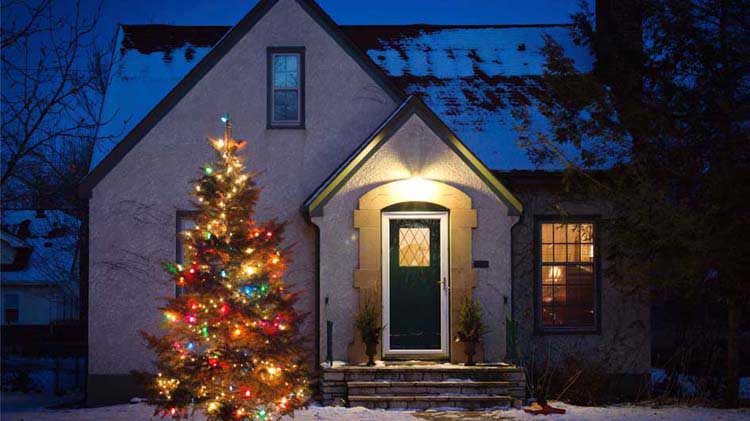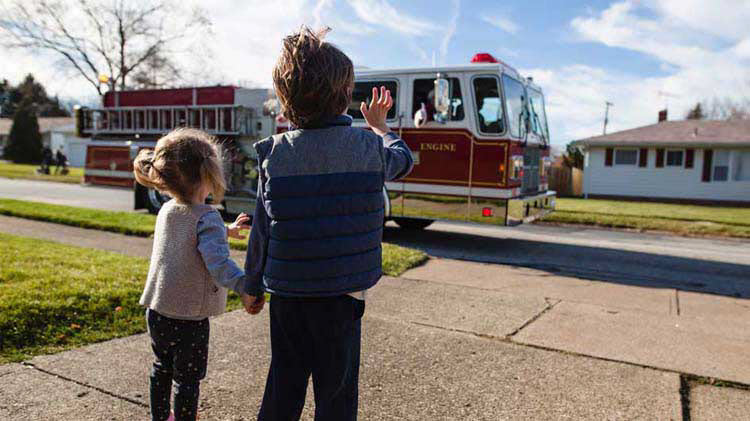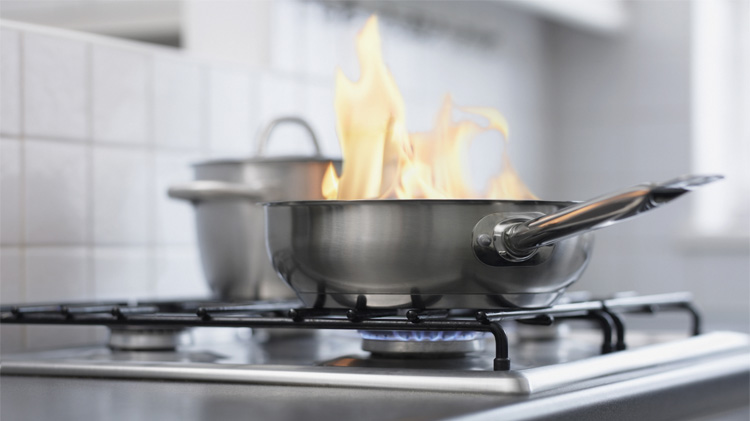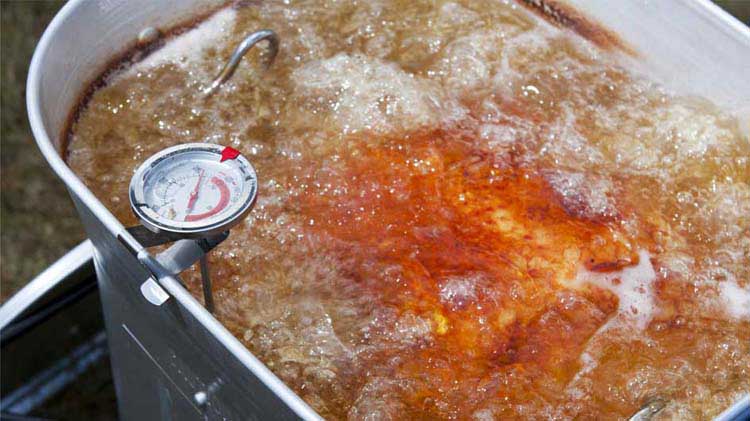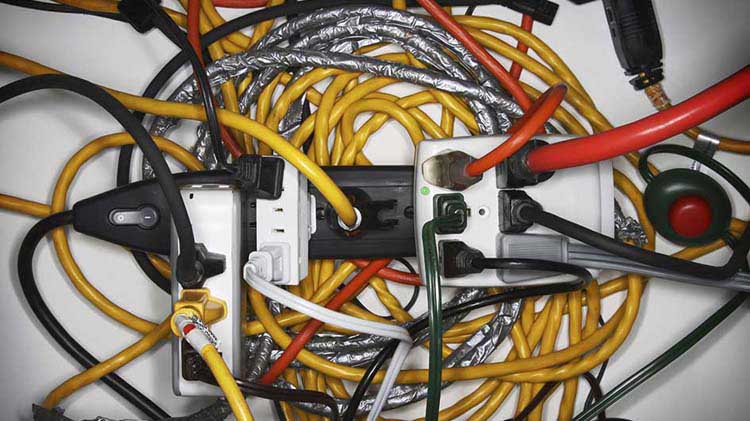Holiday fire safety tips
Take steps toward Christmas tree safety, preventing candle fires and fireplace safety.
Every year there are thousands of reports of falls from ladders while stringing lights and hanging decorations, incidents of lacerations from broken glass ornaments and other holiday-related injuries. According to the National Fire Protection Association, between 2015 and 2019, Christmas trees that caught fire caused an average of $10 million in property damage, 12 injuries and two deaths. And in December alone, the number of decoration fires caused by candles jumped to 45 percent compared to about 33 percent year-round.
Have a fantastic holiday season by following some simple holiday fire safety tips. Happy Holidays!
Prevent Christmas tree fire hazards
- Check that your live tree is fresh — nobody likes a burning Christmas tree! The needles should be hard to pull from the branches and don't break when bent between your fingers. The bottom of the trunk should be sticky with resin. If you tap the tree on the ground, few needles should fall off.
- Keep the tree away from heat sources such as fireplaces, space heaters, candles, vents and radiators.
- Be sure to check the water level daily and make sure the stand is filled with water. Heated rooms will quickly dry out the tree.
- Practice Christmas tree safety by placing the tree out of traffic and make sure it's not blocking doorways.
- If you buy an artificial tree, be sure to look for the "Fire Resistant" label. The label doesn't guarantee the tree won't catch on fire, but it does indicate the tree is more resistant to catching on fire.
- If you used a real tree, be sure to place it far from your home or other combustible objects when you're finished with it. This is because as it ages and is removed from watering, it will dry out and become more flammable.
- Different areas have different rules for recycling trees. Check with your local government website and/or your garbage collector to see your pickup options. In some cases, this can include recycling real trees for mulch.
How to avoid candle fires
- Only burn candles where you can keep an eye on them.
- When you go to bed, leave the room or leave the house, extinguish all candles.
- Ensure candles are placed on heat resistant, stable surfaces and where kids and pets can't reach them or knock them over.
- Candles should always be placed far away from items that could catch fire and burn easily, such as trees, decorations, curtains and furniture.
How do you avoid electrical fires?
- Practice Christmas light safety by buying your lights from reputable retailers. Check that your lights are approved by a nationally recognized testing lab such as UL, Intertek or CSA. UL identifies products meeting safety requirement for indoor and outdoor use with a red holographic label. For indoor only usage, the product will have a green holographic label.
- Be sure to check all lights and throw out any with sockets that are broken or cracked and wires that are frayed, bare or with loose connections.
- Never use electric lights on metallic trees.
- Make sure to use extension cords for their intended use — indoors, outdoors or both.
- Be sure to plug outdoor Christmas lights into circuits that are protected by Ground Fault Circuit Interrupters (GFCIs).
- Fasten outdoor lights securely to the house, trees or other supports to keep them from pulling away with the wind. But don't damage the cord with fasteners. Take care not to puncture roofing shingles when fastening lights to the home.
- Watch for water and snow and keep both extension cords and lights clear of them.
- Make sure cords and light strands are not pinched in doors, windows or under furniture. This can damage the cord and its insulation.
- When you leave home or go to bed, be sure to turn off all indoor and outdoor Christmas lights and electrical decorations.
- Be very careful around power lines — keep yourself and your equipment at least 10 feet away from them.
- Don't overload electrical outlets with too many decorations or other electrical devices — they could overheat and cause a fire.
Is your fireplace ready for the holidays?
- Before using the fireplace, it's recommended to have it inspected annually to see if your chimney should be cleaned.
- Be sure to keep a screen on the fireplace to prevent embers from popping out and landing on the floor or carpet.
- Don't burn wrapping paper in the fireplace. The paper ignites quickly and burns intensely and could result in a flash fire. Only use seasoned wood.
- Be careful with "fire salts" which produce colored flames when thrown on wood fires. If swallowed, they can cause vomiting. They also contain heavy metals that can cause gastrointestinal irritation.
Additional safety tips for decorating this holiday season
Fires are just one area of safety to think about during the holiday season. Decorating can also be something that can cause injuries.
- If there are small children in the home, take special care to avoid heavy, sharp or breakable decorations. And be sure children can't reach decorations with small removable parts that can be swallowed or inhaled. Don't tempt children with decorations that resemble candy or food that they might try to eat.
- Check ladders for loose or missing screws, hinges, bolts and nuts before you use them.
- When decorating outside, use wooden or fiberglass ladders. Metal ladders can conduct electricity.
- Ladders should extend at least three feet past the edge of the roof.
And remember, if you're traveling for the holidays, follow these steps to help protect your home from theft while you are away. In addition to caring for your home, you can care for the environment this holiday season. Last but not least, please protect yourself by guarding against theft and scams. If you hang your stockings by the chimney, please do so with care, and safely enjoy this time and the new year.
